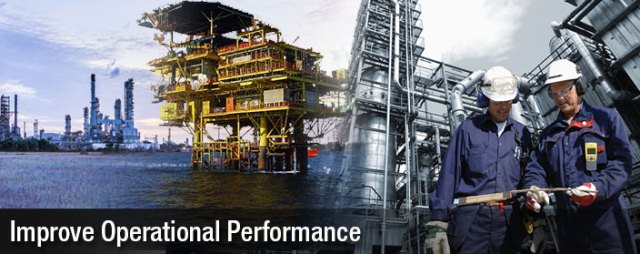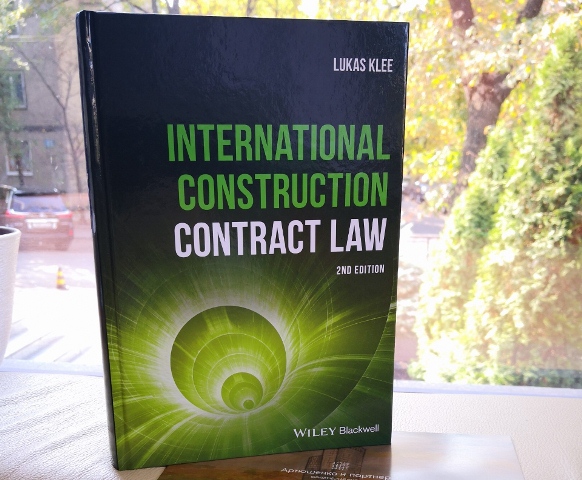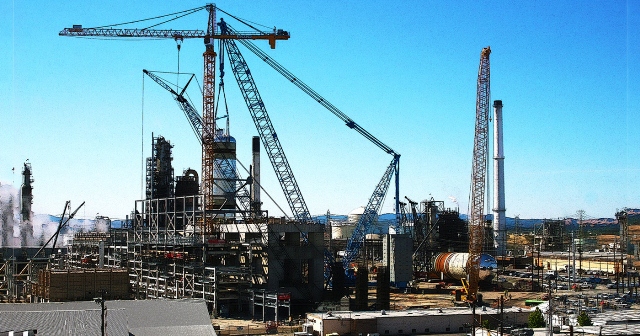Large international construction projects often have a range of major contractors, subcontractors, and consultants based in different parts of the world and working to different legal theories and understandings. This can lead to confusion in the understanding, interpretation, and execution of the construction contract, which can result in significant disruption to the construction project.

EPC Company
In an EPC contract, the EPC contractor develops the project from commencement to final completion. The owner or principal of the EPC project provides the EPC contractor with a detailed design including technical and functional specifications, in order for the EPC contractor to build and deliver the project to the “turn of the key”, within a specified time period. This is why EPC contracts are often referred to as “turnkey” projects.
The scope of work should be clearly defined in the contract documents; therefore, amendments to the scope of work should not be a common feature in EPC contracts. For this reason, an EPC contract is often a fixed price contract or an all-encompassing lump sum contract. Any shortfall of costs is a risk that rests with the EPC contractor, making cost control their number one priority.
International Construction Law
International Construction Contract Law is written for anyone who needs to understand the legal and managerial aspects of large international construction projects, including consulting engineers, lawyers, clients, developers, contractors and construction managers worldwide.
The revised second edition of International Construction Contract Law is a comprehensive book that offers an understanding of the legal and managerial aspects of large international construction projects.
This practical resource presents an introduction to the global construction industry, reviews the basics of construction projects and examines the common risks inherent in construction projects. The author — an expert in international construction contracts — puts the focus on FIDIC standard forms and describes their use within various legal systems.

Construction project management
This important text contains also a comparison of other common standard forms such as NEC, AIA, and VOB, and explains how they are used in a global context.
The revised edition of International Construction Contract Law offers additional vignettes on current subjects written by an international panel of numerous contributors.
Designed to be an accessible resource, the book includes a basic dictionary of construction contract terminology, many sample letters for Claim Management and a wealth of examples and case studies that offer helpful aids for construction practitioners.
International Construction Contracts
Lukas Klauss: EPC Contract meaning
Lukas Klee s International Construction Contract Law is a useful contribution to the doctrine of international construction law. The book is well written and contains a wealth of practically useful information, which will help in-house lawyers, external lawyers, engineers, project managers, and other professionals who are involved in the negotiation and/or management of major international construction contracts.
International Construction Contract Law will be invaluable to those operating in the international construction market and undoubtedly will become a practitioner s go-to guide on the subject.
The description of key concepts is thorough and the snapshots of relevant common law principles clearly articulated. Dr. Klee cleverly connects the legal and the practical thereby bringing the performance and administration of construction contracts out of the theoretical realm into the real world.
Given the increasing globalization of commerce, it is essential that persons setting up the transactions understand the legal means at their disposal.
The book investigates the possibilities of a future more coherent, standardized method of contracting construction projects, by comparing the pros and cons of various contract forms and legislations applied worldwide.

Engineering procurement construction
Many large construction projects, such as those in the Middle East or the Asia Pacific, are international in scope with a range of contractors and subcontractors signing contracts for the delivery of specified work or services.
The contractual situation in these instances may be complex and potentially includes a range of standard and bespoke contractual arrangements. In addition, the parties to these contracts may be based in different parts of the world, and are often working to different legal systems and understandings. This can lead to confusion in the understanding, interpretation, and execution of a given contract.

EPC Construction
International Construction Contracts provides concise and practical guidance to those involved in the negotiation and management of international construction and engineering contracts.
It sets out in clear, straightforward language the main features of construction contracts and international dispute resolution procedures. It ensures the reader is aware of the issues that might arise on the contractual side of their project so that they may better protect their party’s interests.
Large construction projects, especially those involving several countries, require massive human and material resources, complicated by the diverse mix of participants from differing cultural, linguistic and legal backgrounds. Construction lawyers in fact emerge as the key players in these massive endeavors.

Construction contract management
For anyone working in the oil and gas industry today, finding your way through the maze of contract management seems more cutthroat and challenging than ever before. In Construction Contracts, dispels the myth that “there has to be a winner and a loser in contractual management and dispute control”.
A construction contract provides a legal binding agreement, for both the owner and the builder, that the executed job will receive the specific amount of compensation or how the compensation will be distributed. There are several types of construction contracts used in the industry, but there are certain types of construction contracts preferred by construction professionals.
EPC company means
EPC Contract meaning: Types of construction contracts
Construction contract types are usually defined by the way, the disbursement is going to be made and details other specific terms, like duration, quality, specifications, and several other items. These major contract types can have many variations and can be customized to meet the specific needs of the product or the project.
Lump Sum Payment
Lump Sum or Fixed Price Contract Type: EPC Contract meaning
This type of contract involves a total fixed priced for all construction-related activities. Lump-sum contracts can include incentives or benefits for early termination, or can also have penalties, called liquidated damages, for a late termination. Lump-Sum contracts are preferred when a clear scope and a defined schedule has been reviewed and agreed upon.
This contract shall be used when the risk needs to be transferred to the builder and the owner wants to avoid change orders for unspecified work. However, a contractor must also include some percentage cost associated with carrying that risk. These costs will be hidden in the fixed price. On a lump sum contract, it is harder to get credit back for work not completed, so consider that when analyzing your options.
Cost Plus Contract
This type of contract involves payment of the actual costs, purchases or other expenses generated directly from the construction activity. Cost Plus contracts must contain specific information about a certain pre-negotiated amount (some percentage of the material and labor cost) covering contractor’s overhead and profit. Costs must be detailed and should be classified as direct or indirect costs. There are multiple variations of Cost Plus contracts and the most common are:
- Cost Plus Fixed Percentage
- Cost Plus Fixed Fee
- Cost Plus with Guaranteed Maximum Price Contract
- Cost Plus with Guaranteed Maximum Price and Bonus Contract
Cost-plus contracts are used when the scope has not been clearly defined and it is the owner responsibility to establish some limits on how much the contractor will be billed. When some of the aforementioned options are used, those incentives will serve to protect the owner’s interest and avoid being charged for unnecessary changes. Be aware that cost-plus contracts are difficult or harder to track and more supervision will be needed, normally do not put a lot of risk in the contractor.
Time and Materials Contract
Time and Material Contracts When Scope is Not Clear
Time and material contracts are usually preferred if the project scope is not clear, or has not been defined. The owner and the contractor must establish agreed hourly or daily rate, including additional expenses that could arise in the construction process.
The costs must be classified as direct, indirect, markup, and overhead and should be included in the contract. Sometimes the owner might want to establish a cap or specific project duration to the contractor that must be met, in order to have the owner’s risk minimized. These contracts are useful for small scopes or when you can make a realistic guess on how long it will take to complete the scope.
Construction Unit Price
Unit pricing contracts is probably another type of contract commonly used by builders and in federal agencies. Unit prices can also be set during the bidding process as the owner requests specific quantities and pricing for a pre-determined amount of unitized items.
By providing unit prices, the owner can easily verify that he’s being charged with un-inflated prices for goods or services being acquired. Unit price can easily be adjusted up and/or down during scope changes, making it easier for the owner and the builder to reach into agreements during change orders.

Construction management books
From amazon.com
What are the EPC contractors?
Engineering, Procurement and Construction (EPC) is a particular form of contracting arrangement used in some industries where the EPC contractor is made responsible for all the activities from design, procurement, construction, commissioning and handover of the project to the end-user or owner.
The fundamental difference is the role of the EPC or EPCM contractor. In an EPC contract, the EPC contractor develops the project from commencement to final completion. This is why EPC contracts are often referred to as “turnkey” projects. For this reason, an EPC contract is often a fixed price contract or an all-encompassing lump sum contract. Any shortfall of costs is a risk that rests with the EPC contractor, making cost control their number one priority.
In contrast to the EPC model, the EPCM contractor is not directly involved in the building and construction of the project, but is rather responsible for the detailed design and overall management of the project, on behalf of the owner or principal.
EPC stands for Engineering, Procurement, and Construction. These companies are hired by Oil & Gas companies for long-term projects that need to be completed by skilled individuals.
Engineering, Procurement and Construction (EPC) is a particular form of contracting arrangement used in some industries where the EPC contractor is made responsible for all the activities from design, procurement, construction, commissioning and handover of the project to the end-user or owner.
Normally the EPC Contractor has to execute and deliver the project within an agreed time and budget, commonly known as a Lump Sum Turn Key (LSTK) Contract. An agreed LSTK scope of works and price will be negotiated and agreed between EPC Contractor and Project Owner during the execution of EPC activities.
The most read

Top EPC Companies
EPC services company, EPC oil & gas multinational company, EPC company means, what is EPC company.

EPCM Companies
What is an EPCM company? EPC and EPCM services, EPCM contract template, the difference between EPC and EPCM, resource management solutions.

EPC Construction Company
What is EPC company? EPC services company, EPC construction company, EPC company means, EPCM Contract, Top EPC Companies in the USA
